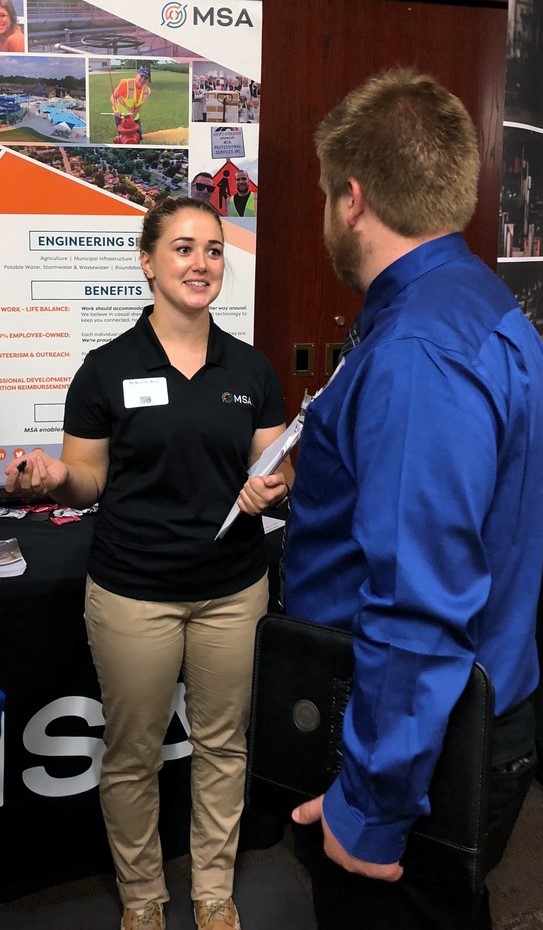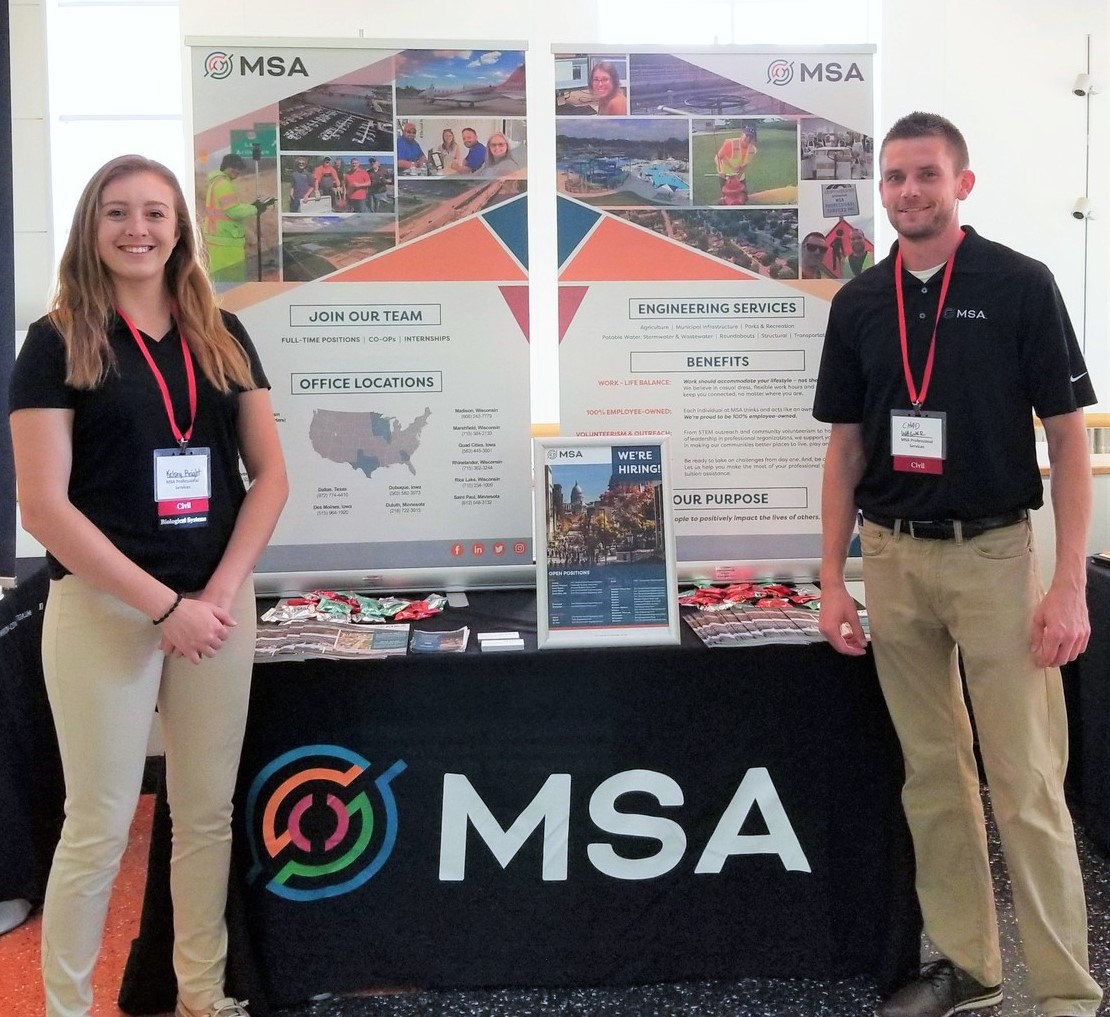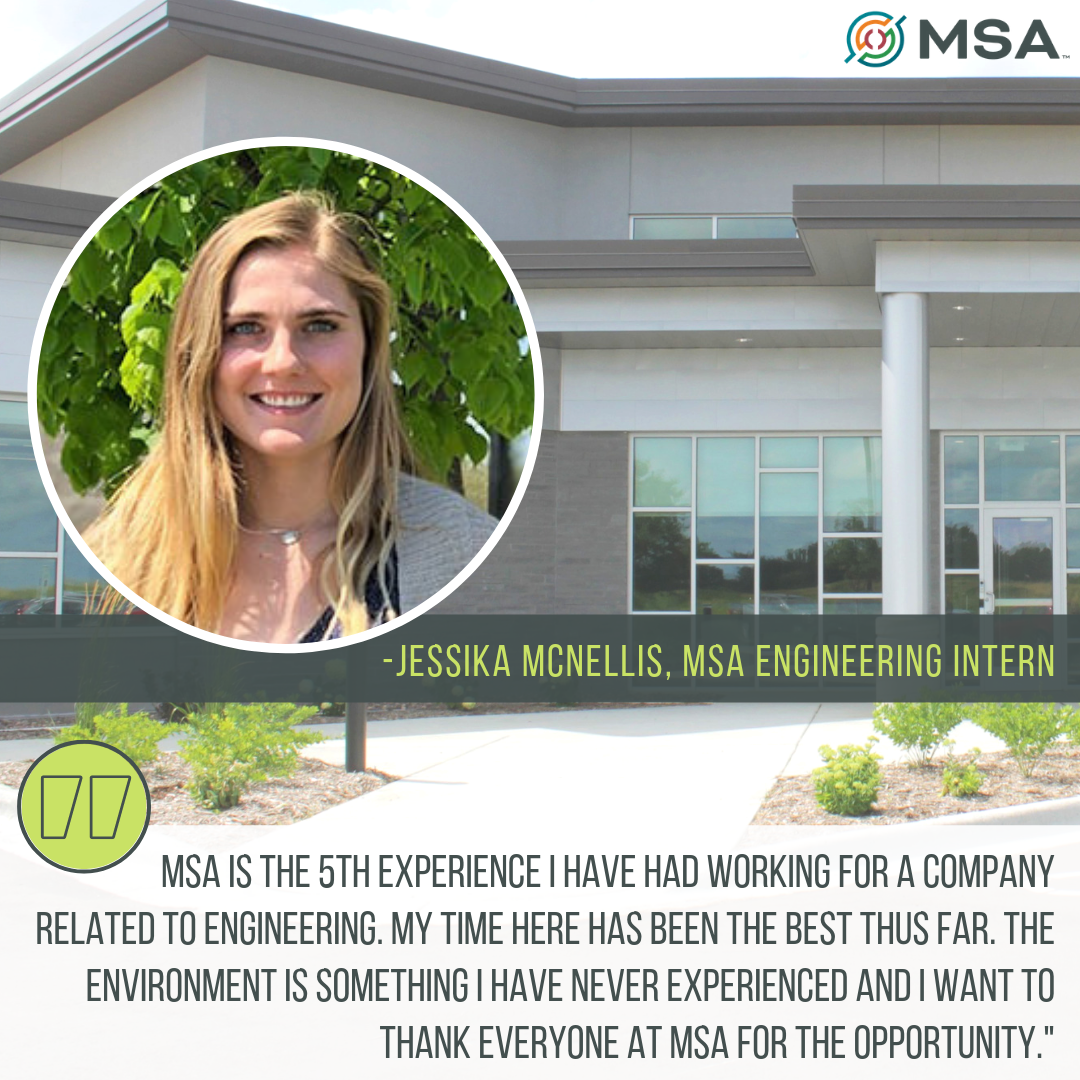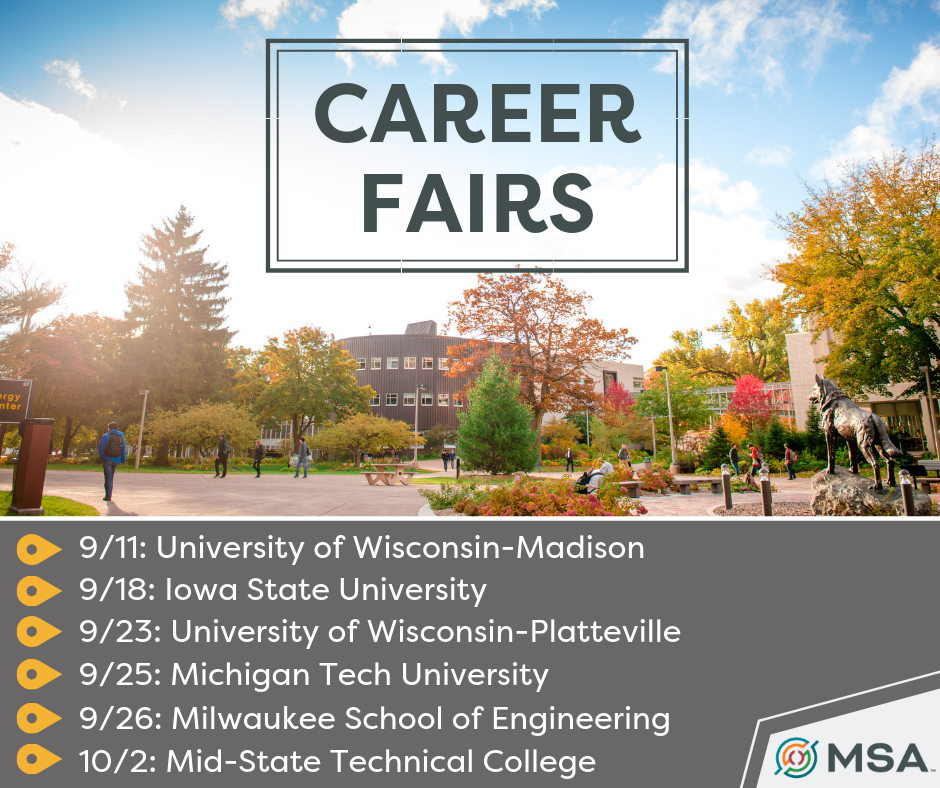Walking into a career fair can be intimidating. Everyone is competing for time, dressed to impress, with resumes and life experiences condensed down into flashy, bite-sized talking points. But, what are recruiters really looking for in this process? Thoughtful questions, honest answers, and an engaging conversation.
After all, a career or job fair is essentially a mini interview and a variety of questions are sure to come your way. Knowing how to best prepare for those questions and how to ask thoughtful ones in return can earn you a coveted spot on an employer’s list of potential candidates.
First things first: everyone is human.
That recruiter or career fair ambassador on the other side of the table is a human being just like you. They value basic human qualities of conversation, eye contact and smiling. And, like you, they’ve been in your shoes before, vying for that desired internship or entry level position. A recruiter simply wants to learn more about who you are and help answer any questions you may have about the company or position of interest. Keep in mind that job offers are seldom made at these events anyway. This should allow you to relax a little, put your best foot forward and see where it leads you.
Incoming!

Will you be asked questions at a career fair? Absolutely. What will they be? Asking Google this question will yield you 362 million results. The short answer is, be prepared for anything from the basic get-to-know-you questions to some that may test your ability to wing it. Most importantly, know how to speak about your experience, strengths and interests with clarity and confidence. If you’re asked an oddball or “stumper” question, remain calm. The truth is, sometimes a recruiter or potential employer is just gauging to see if you panic or not. Perhaps you’ll come up with a stunningly perfect answer, but more often than not, you’ll just be your genuine self. And, that is precisely who they are wanting to see. That being said, there are a few common inquiries that often make the list:
“Tell us about yourself.”
This one leaves the gate pretty much wide open, and knowing what to leave out is just as important as what to include. This prompt is not an invitation to detail your life story. Remember that recruiters see hundreds of students throughout the course of the day, and their time should be respected. Keep it concise. Think of your response as an inverted pyramid: start with a broad background of information and work your way down to a few important details that highlight your accomplishments or reveal a specific topic that most interests you. This is not the platform to revisit what you learned or did in high school. Stick to your collegiate or post-secondary experiences.
“What are your greatest strengths?”

This question might be asked for a few reasons, such as seeing how your strengths align with the needs of the company, what qualities or skills set you apart from the competition or whether or not you’re self-aware. Be accurate and honest; only name strengths that you actually possess, not what you think the recruiter wants to hear. Be specific. “I’m a people person” could be improved by saying that you’re good at building relationships or are a concise and organized communicator. Lastly, don’t be too humble. “I’m always on time” is great, but showing up to work on time is assumed in a professional workplace. If that is your greatest strength, it might be a red flag for a potential employer. Brainstorm ahead of time. Ask a friend or colleague for input if you need to. Then, zero in on one or two of your best strengths and build a short narrative around them, with examples to back up your statement.
“What are some of your weaknesses?”
You don’t want to point out an actual weakness, right? Wrong. Recruiters will see right through any attempt to disguise a strong suit as a weakness. Statements such as “I’m too much of a perfectionist” or “I’m a workaholic” may come across as disingenuous, because being committed to your work and being detail-oriented are generally seen as positive traits. Don’t shoot yourself in the foot, but be honest, and then follow up with an example and description of how you’ve taken action to improve.
“What achievements are you most proud of?”
No matter what job you’re interviewing for, you likely won’t be working entirely solo; you’ll be part of a team. When considering a response to this question, think about an accomplishment that has helped others or created value for someone other than yourself. Making the honor roll is great, but a recruiter is looking for an example of how you made some sort of broader impact or overcame challenges to reach a goal.
Flipping the script.

Now it’s your turn. Study up ahead of time and arrive with a list of questions for the recruiter, but be sure to leave room for the conversation to flow freely and other questions to arise during the process. This is a two-way street and your opportunity to “interview” potential employers to see if the company is a good fit for you. It’s your career after all; take charge.
Let’s start with a couple of questions to avoid. If you need to ask, “What does your company do?,” you clearly didn’t do your research and that will be obvious. Review the list of career fair attendees ahead of time. See which companies look interesting to you. Visit their websites, learn about their history and types of work so that you are prepared for a real conversation. Secondly, avoid asking questions about pay or vacation time. If an employer brings this up in a discussion about benefits packages, that’s fine, but asking prematurely may set the tone that you’re just looking for a paycheck and a holiday.
So, what should you ask? This is the perfect time to get a sense of company culture, ethics and the day-to-day duties of the job. When compiling your questions, think about these things as they relate to your values, your working environment preferences and your long-term goals. Thoughtful questions also reveal that you have a grasp of what kind of employer you’re looking for, which makes it easier for both parties to make an employment match.
A few ideas for your question list might include the following:

- How big is the company and what size of the team would you be working with?
- If interested in a specific position, ask what the typical duties of that job are, or what the career progression for that role might be.
- Ask the recruiter about their personal experience working at the company. How long have they been there? What drew them to it? Why do they stay? What do they love the most?
- What are the company’s goals for the next five or 10 years?
- What are the professional growth or development opportunities? Do they support ongoing education and learning? How?
- Ask directly, “What kind of position do you think my skills and qualifications might be a good fit for within the company?”
- Is it a team-driven company or do you work very independently?
- Are there any opportunities for working remotely and what technology provided might make that possible?
- Ask about company culture. This can encompass a variety of things from work-life balance to employee gatherings/fun events, dress code (casual vs. business), office rapport, or physical office spaces.
Lasting impressions.
However the questions and answers go, just remember to be yourself. There is something positive to learn from every career fair event. So, be confident, smile and just have fun! Many recruiters return to the same career fair year after year, so the more you build a rapport, the more likely you are to stand out to them. Even if you are not actively seeking a position, a little relationship building now may result in a job in the future. Employers come to career fairs looking to connect with students – take advantage of this opportunity and see where it leads you.
Learn more about who we are at MSA, read some of our other insider tips about career fair preparation and be sure to visit us at an upcoming career fair near you! We’d love to connect.

